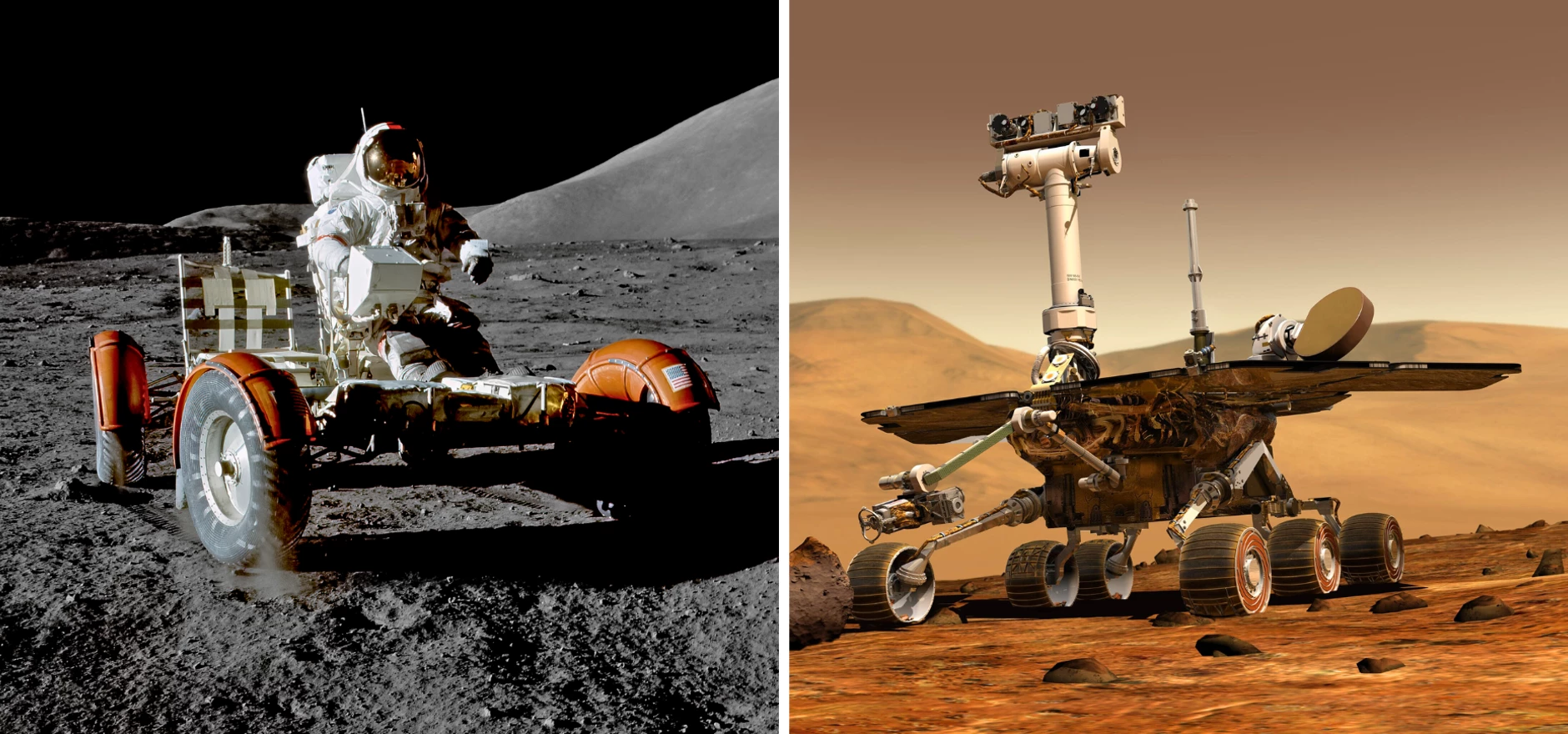
New funding ensures UK’s role in global exploration to the Moon, Mars and Venus
UK scientists and engineers will play a role in major global missions to the Moon, Mars and Venus, thanks to new funding from the UK Space Agency for international space science and exploration projects.
The Space Science and Exploration Bilateral Programme will help Royal Holloway develop software for the Indian Space Agency (ISRO) Chandrayaan-2 orbiter to detect ice under the surface of the lunar south pole.
Another project will see the University of Leicester lead on a Raman spectroscopy instrument for iSpace’s commercial rover and lander missions investigating water ice on the Moon, helping us to understand whether this is a resource that could be used for longer term lunar exploration.
Other projects to receive a share of the £7.4m funding include the Open University and universities of Sussex, Aberdeen and Cambridge teaming up with NASA, the Canadian Space Agency (CSA) and the Japan Aerospace Exploration Agency (JAXA).
The announcement coincides with the Global Space and Technology Convention (GSTC), taking place in Singapore this week to showcase the rapidly growing sector in Asia and opportunities for international collaboration.
These projects, alongside a UK delegation at the GSTC, highlight how the UK supports its ‘world-class’ scientists to work with partners around the world as set out in the National Space Strategy.
Andrew Griffith MP, Minister for Space at the Department for Science, Innovation and Technology, said: “From exploring water on Mars and the possibility of sustained human activity on the red planet, to how galaxies evolved over time, our more than £7m investment is pushing the boundaries of space discovery and putting the UK at the heart of some of the most important global space missions.
“With top UK universities from Sussex to Aberdeen leading these groundbreaking endeavours, our country is at the heart of exploring beyond our planet, working with partners in Japan, India, North America and around the world, and growing our economies.”
Dr Paul Bate, Chief Executive of the UK Space Agency, added: “These projects present an opportunity for UK science to make crucial contributions to ground-breaking global missions that will deepen our understanding of the Moon and our neighbouring planets.
“This funding, which builds on previous early-stage awards, will help catalyse international investment into the UK space sector and highlights the value we place on sharing knowledge and expertise with our counterparts overseas to break the boundaries of space exploration.”
Looking to promote your product/service to SME businesses in your region? Find out how Bdaily can help →








 Putting in the groundwork to boost skills
Putting in the groundwork to boost skills
 £100,000 milestone drives forward STEM work
£100,000 milestone drives forward STEM work
 Restoring confidence for the economic road ahead
Restoring confidence for the economic road ahead
 Ready to scale? Buy-and-build offers opportunity
Ready to scale? Buy-and-build offers opportunity
 When will our regional economy grow?
When will our regional economy grow?
 Creating a thriving North East construction sector
Creating a thriving North East construction sector
 Why investors are still backing the North East
Why investors are still backing the North East
 Time to stop risking Britain’s family businesses
Time to stop risking Britain’s family businesses
 A year of growth, collaboration and impact
A year of growth, collaboration and impact
 2000 reasons for North East business positivity
2000 reasons for North East business positivity
 How to make your growth strategy deliver in 2026
How to make your growth strategy deliver in 2026
 Powering a new wave of regional screen indies
Powering a new wave of regional screen indies